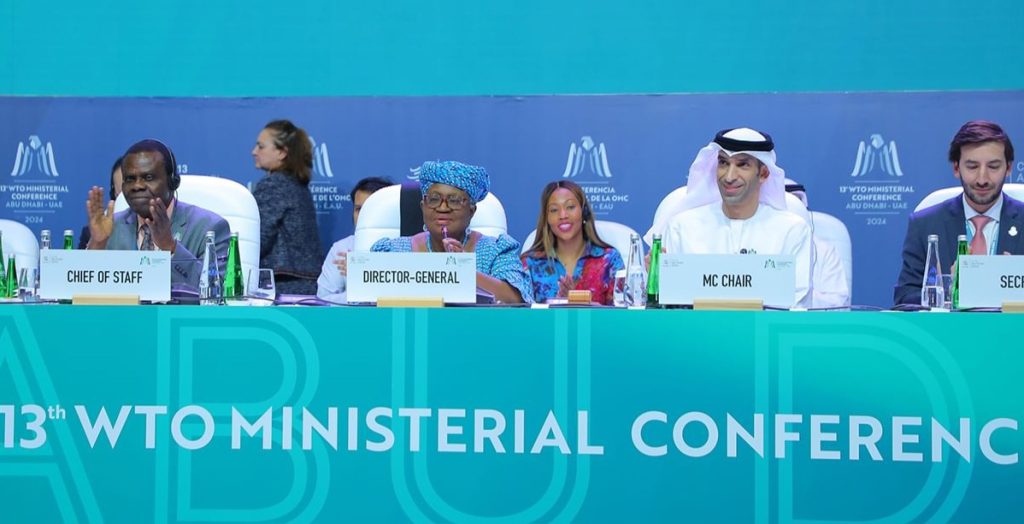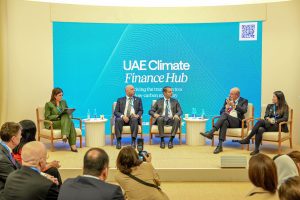WTO Concludes MC13 with Pivotal Agreements in Abu Dhabi

Abu Dhabi, The Gulf Observer: The World Trade Organisation (WTO) successfully concluded its 13th Ministerial Conference (MC13) in Abu Dhabi, marking a significant step forward for the organization. The conference, attended by nearly 4,000 ministers, senior trade officials, and delegates from the WTO’s 164 members and observers, resulted in the adoption of a Ministerial Declaration outlining a forward-looking reform agenda.
Among the key decisions reached during the conference, WTO members renewed their commitment to establishing a fully functional dispute settlement system by 2024. Additionally, they pledged to enhance the utilization of special and differential treatment (S&DT) provisions, specifically benefiting developing and least developed countries (LDCs). The commitment to continue negotiations on issues where consensus was elusive at MC13 was also emphasized.
The Abu Dhabi Ministerial Declaration underscores the pivotal role of the multilateral trading system in addressing contemporary trade challenges, emphasizing the importance of preserving and strengthening it. Acknowledging the development dimension, the Declaration recognizes the WTO’s contribution to achieving the UN 2030 Agenda and its Sustainable Development Goals.
Dr. Thani bin Ahmed Al Zeyoudi, Minister of State for Foreign Trade and MC13 Chair, expressed gratitude for the active engagement of all members during the conference. While acknowledging that not all goals were achieved, he emphasized that the commitment demonstrated would bolster the multilateral trading system.
A Ministerial Decision was adopted to reform the dispute settlement system, with a focus on achieving a fully operational system accessible to all members by 2024. WTO Director-General Ngozi Okonjo-Iweala commended the progress made and urged continued efforts to deliver on this commitment.
A historic Ministerial Decision addressed the 23-year-old mandate to review special and differential treatment (S&DT) provisions for developing and LDCs, aiming to make them more precise, effective, and operational. This decision is deemed a significant win for development, facilitating the fulfillment of WTO commitments by developing nations, especially LDCs.
In a groundbreaking move, ministers engaged in discussions on trade’s relation to sustainable development and socioeconomic inclusion. Director-General Okonjo-Iweala highlighted the role of trade and the WTO in empowering women, supporting micro, small, and medium-sized enterprises (MSMEs), and achieving holistic sustainable development.
The conference also witnessed the approval of WTO membership terms for the Comoros and Timor-Leste, the first new members in almost eight years. Members endorsed a Ministerial Decision easing the path to graduation from the category of least-developed countries and reaffirmed their commitment to the Work Programme on Small Economies.
Crucial decisions were made on electronic commerce, including periodic reviews of the E-commerce Work Programme and maintaining the moratorium on customs duties for electronic transmissions until MC14 or March 31, 2026, whichever is earlier. Additionally, the Fisheries Subsidies Agreement gained momentum as South Africa presented its instrument of acceptance to Director-General Okonjo-Iweala.
The outcomes of the 13th Ministerial Conference reflect a concerted effort to address global trade challenges, promote sustainable development, and fortify the multilateral trading system, setting the stage for continued collaboration and progress in the years ahead.







